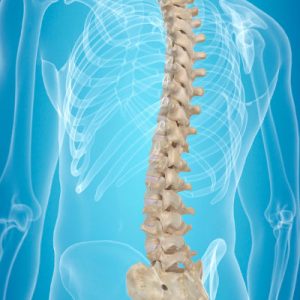DESCRIPTION
IGCSE Accounting (9-1)
Exam code: 0985
Delivery method: Online
IGCSE duration: 120 hours over 12 Months
Entry requirements: No prior qualification needed
Award achieved: CIE IGCSE Accounting
Awarding body: CIE
IGCSE Accounting is a great building block to A Levels but also an interesting subject in its own right. You will study both basic bookkeeping and the accounting environment as part of this online IGCSE.
You will also gain an appreciation of accounting concepts as well as understanding how the accountant works withing the business environment.
IGCSE Accounting Overview
Upon successful completion of the exam and practical assessments (as administered by CIE), you will have achieved an internationally recognised CIE IGCSE Accounting (0985) qualification.
IGCSE Accounting Outline
This IGCSE is divided into 7 units of Study.
- The fundamentals of accounting
- Sources and recording of data information in books of prime entry.
- Verification of accounting records
- Accounting procedures
- Preparation of financial statements
- Analysis and interpretation
- Accounting principles and policies
Paper 1:
Exam Availability: May/ June or November
Written examination: 1 hour 15 minutes
Paper 2:
Exam Availability: May/ June or November
Written examination: 1 hour 45 mins

IGCSE Accounting Content
The mains areas of study are:
- The fundamentals of accounting – This section introduces the subject by explaining the difference between book-keeping and accounting. The
role of accounting in providing information and the purposes of measuring business profit and loss are also
explored. Basic accounting terms and the accounting equation are introduced. - Sources and recording of data – The core topic of this section is the double entry system of book-keeping and how this is applied in the
preparation of ledger accounts. The division of the ledger is considered. Business documents and their use as sources of information are also included. Consideration is given to the procedures for processing information in books of prime entry. - Verification of accounting records -This section concentrates on the use of trial balances, bank reconciliation statements and control accounts as
means of verifying accounting records. The procedures for the correction of errors are also covered. - Accounting procedures – Within this section, consideration is given to the importance of distinguishing between capital and revenue
expenditure and receipts. Non-current assets are further explored in terms of accounting for depreciation and disposals. Procedures to record adjustments for accruals and prepayments, irrecoverable debts, provision of doubtful debts and the recovery of debts written off are included. Inventory valuation, and its impact on financial statements, is also covered. - Preparation of financial statements – The focus of this section is the preparation of financial statements, including year-end adjustments, for
different types of businesses (sole traders, partnerships, and limited companies). Consideration is also given to the financial statements of clubs and societies and manufacturing businesses. The procedures employed when only incomplete records are available are also covered. - Analysis and interpretation – This section introduces the calculation and the interpretation of the main accounting ratios. The use of ratios in inter-firm comparison is also included. Consideration is also given to the uses of accounting information by interested parties. The limitations of accounting statements are also explored.
- Accounting principles and policies – The main accounting principles are introduced together with how they are applied in accounting records and statements. Consideration is also given to the influence of international accounting standards and the selection
of accounting policies.

Skills gained
The IGCSE provides opportunities to gain skills that will support progression to further study of accounting, and to enhance future educational or employment prospects. Accounting qualifications can be particularly valuable for students wishing to progress into accountancy or financial careers; accountant graduates tend to have excellent employment prospects, allowing many students to work in a range of global sectors and industries.
Assessment
The CIE IGCSE Accounting qualification is gained once all four exam papers are successfully completed.
These exams are administered by CIE. As a private candidate you will sit your exams in an exam centre such as a school, college, or private tuition centre.
Use the map below there are a huge number of places where you can sit your exams.
Registration dates and deadlines:
https://www.britishcouncil.org.bd/en/exam/igcse-school/register/registration-dates-deadlines
Message for Private Candidates:
https://www.britishcouncil.org.bd/en/exam/igcse-school/register/registration-dates-deadlines
In addition, if you select the added tutor support there will be a number of tutors marked assessments (TMAs) to ensure that you have a thorough understanding of the content, with the tutor sending comments to guide you through any areas of potential difficulty. This will ensure you are prepared for the final exams.
Method of study
Online IGCSE
The IGCSE is delivered online via the Learning Management System (LMS).
The online IGCSE has many features that cannot be printed such as embedded videos, forums, and interactive tests.
If you opt for tutor support, it also includes Tutor Marked Assessments which you access and submit through the online system.
Tutor support
We highly recommend the additional tutor option to support our IGCSE e-books. For just £35 you will receive tutor feedback and support by email for 12 months. They will mark your TMAs and provide valuable guidance through any trickier parts of the content whenever you need it. You will also receive a study guide to help you with all aspects of studying, essay writing and general student skills.
How quickly can I complete the IGCSE?
You can complete your IGCSE as quickly or slowly within the 12 months as you choose. The recommended study time for the content is 120 hours. The exam dates are set by the exam boards and for IGCSE Accounting are available in November or May/June each year. This gives you two opportunities to sit the exams over the 12 months
How do I get started?
Once you have decided on the right A Level or GCSE for you click ‘Add to Basket’.
You can then either ‘Checkout’ straight away or ‘View your Basket’ and continue searching for an additional A Levels and GCSEs.
Go through our secure online ordering process and pay.
 How do I get my e-book and tuition?
How do I get my e-book and tuition?
Online
If the A Level or GCSE, you have bought is delivered online you will receive your login details by 2pm the next working day.
What do I do next?
All the information you need will be included in your study guide which will be emailed to you. Once you have your login you will be good to go!
Everyone at Oxford College of Education wishes you the best of luck on your studying journey! We know it’s both rewarding and challenging and ultimately what a difference that qualification will make to your career path and life.
Good luck!
Our Specialty
- Pass guarantee
- Expert tutors
- Recognised qualifications
- Great support
- Easy Flexible Payments
- Fast-track Your Learning
- Fully Accredited Courses














Reviews
There are no reviews yet.